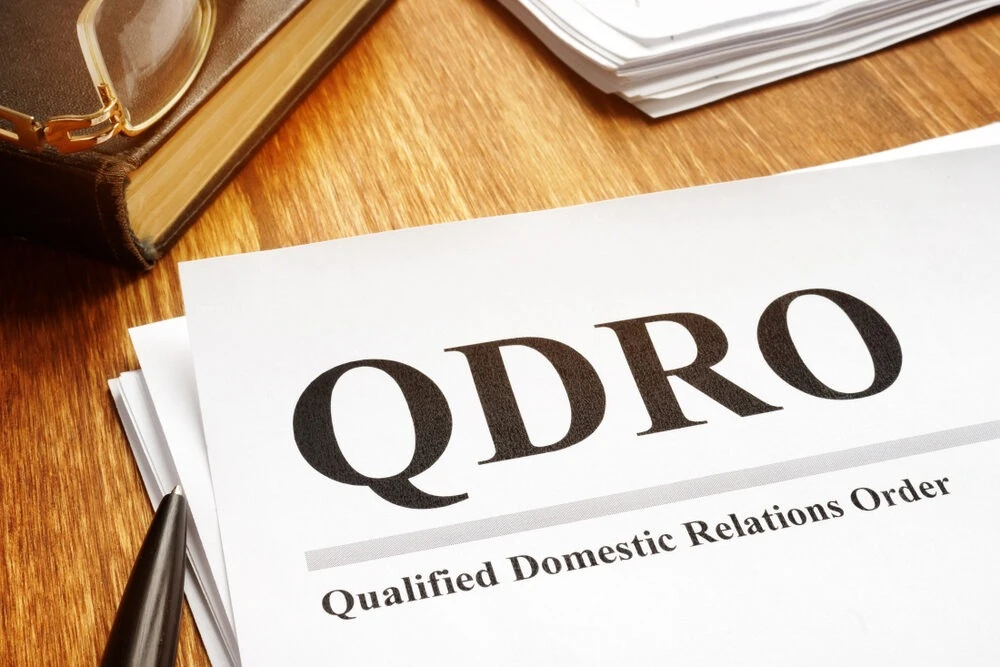If you are going through divorce in North Carolina, it can raise several challenges. Even if you have successfully litigated and fought for child custody and visitation, child support, alimony or spousal support, and the division of the marital assets through equitable distribution, there may still be more that needs to be done.
During the equitable distribution phase of your case the court will decide how all marital assets are going to be divided; this will include dividing the marital home, cars, bank accounts, and retirement accounts.
If you or someone that you know has been through a divorce in Charlotte, you may have heard of the term QDRO and wondered what exactly that is and who needs one.
QDRO is an acronym for a Qualified Domestic Relations Order and is a court order that is created as part of your divorce that directs the division of your retirement plan in accordance with any agreement or equitable distribution order. There can be severe penalties and tax implications by withdrawing money from a retirement account before you are eligible; the purpose of the QDRO is to allow for the division of the retirement plan, incident to your divorce proceedings, to occur without penalty.
A QDRO simply directs the plan administrator to send a certain percentage of a retirement account to your ex-spouse. This percentage is decided in the divorce proceedings and will be a part of the divorce order. It is important to understand that the QDRO is separate from the divorce order and is, simply put, a set of directions for the plan administrator to follow when dividing the account.
Once the money is divided by the plan administrator following the directions of the QDRO, it will be the other spouse’s responsibility to put the money into a like-kind account or pay any taxes that may be incurred.
What types of Retirement Plans Need a QDRO?
Generally, any retirement account that has any sort of tax deferred benefit will need a QDRO, with a few exceptions.
A traditional 401-K, 403(b) and some company sponsored pensions will require a QDRO. Further military and local government plans may require a QDRO or a COAP, Court Order Acceptable for Processing. It is important to note that federal pensions do not require a QDRO because they are not subject to ERISA.
IRA, traditional and Roth, and a KEOG plan do not require a QDRO, but will require you to provide a copy of your divorce decree or divorce settlement to the plan administrator in order to determine the appropriate division of the assets. So, it is important that the divisions of these accounts are clearly spelled out in your documents.
Schedule your free meeting with our team today to see if our Lawyers can help you.
How Does a QDRO Work
At some point in the divorce process, either by agreement or by order of the court, there will be a decision made on how retirement assets are divided. In order to divide retirement assets, you must first identify the marital share—the marital share is what was put towards the retirement account during the marriage plus any gains or losses on that amount. Once you have identified the marital share, then a decision will need to be made as to how much of the marital share will be divided for the divorce—frequently this number is 50% of the marital share. It is important to remember that 50% of the marital share may or may not equal 50% of the total account value. The court can further consider any other factors that may be relevant toward splitting these accounts such as fault for the divorce or contributions made by each party during the marriage.
When dividing pensions, this calculation becomes a little different. You must take the total number of months you worked towards your pension during the marriage and divide that by the total number of months of service towards your retirement; this will equal the marital share. From there, the marital share is divided between the parties.
Once you know these numbers, the QDRO, COAP, or Divorce Decree will inform the plan administrator how much needs to be paid out to the other party. You will need a separate QDRO for each applicable retirement account.
In summary, while divorce proceedings in North Carolina pose numerous challenges, understanding the role of a QDRO is paramount in ensuring a fair and equitable division of retirement assets, safeguarding both parties’ financial futures.
If you find yourself in need of guidance regarding QDROs or any other aspect of divorce proceedings, give your partner in divorce and estate planning, Melone Hatley, P.C. a call or schedule your free consultation with our Client Services Coordinators today!
Schedule a call with one of our client services coordinators today.





